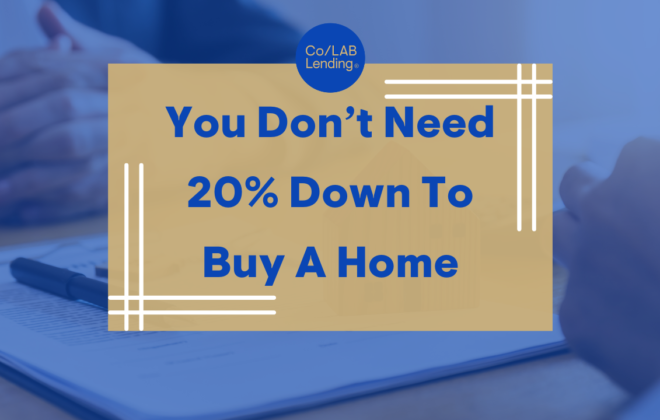How Do I Decide on the Right Real Estate Agent?
For a while there, it seemed like everyone was looking to get their real estate license. In fact, you probably have a few friends or family members who are agents. But, how do you know who is vetted? How can you tell which agents are expert negotiators, experienced, and market savvy?
There are a few different methods to determine what agent is right for you. A good first step is to visit sites like Trulia, Realtor.com, or Zillow, to check out realtors in your area. You can find out their specialties, read customer reviews, and learn other useful information.
Second, you can go with a family or friend’s recommendation. A reference is a great way to kick off your search. Since you most likely share some similarities with your friends and family, you’re more likely to value the same kind of service, work well with similar personality types, and expect a comparable level of experience.
While a recommendation is a great means of finding an agent, there are two potential pitfalls to this alternative. First, you may wind up working with someone who’s too close to your inner circle. This may make it more difficult for you to “talk business” or to communicate in a straightforward, honest manner. Second, the recommendation you received may not be based on experience or specialty, but friendship.
How’s the Conversation?
Whether you’re buying or selling a home, one thing is certain: “you need an agent who you feel comfortable conversing with,” says Tom NeCastro, a Coldwell Banker realtor with nearly 30 years of experience. In addition, whether you’re a buyer or a seller, “you’re looking for someone who is not going to fall apart in negotiation,” NeCastro asserts.
“With a listing agent, I think you need to be able to talk about the nuances of the market and where it’s at currently. You also need to talk about those things with buyers who develop unreal expectations.” Remember, it’s only a buyer’s market when the seller agrees to the price.
What Questions Should I Ask?
- Do you represent more buyers or sellers?
2. Do you work primarily in residential or commercial real estate?
3. Will I be working with you directly or through a sales associate?
4. Do you work full-time or part-time as a real estate agent?
5. How many other buyers and sellers are you currently representing?
- Remember, while busier agents are generally more efficient, too many clients can impact the level of service and the amount of time an agent can allocate toward finding/selling your home.
- Is your license in good standing?
7. How many years of experience do you have?
- While experience is critical NeCastro believes you shouldn’t discredit newer agents. “Whenever I’m working on a listing that’s been on the market for a long time, I’m always excited when a new agent is showing it. They don’t have the experience to know that it shouldn’t be selling [in this market]… and [sometimes] they sell it anyway!”
However, Necastro contends that “A conversation is more important than anyone question in particular.” It’s helpful if an agent’s personality matches or complements the person who he or she is representing. A shared sense of commonality adds a level of comfort, is likely to increase efficiency, and can facilitate better communication. “It’s a matter of sitting across the table from somebody and understanding what they hope to do and what their goal is… you need an agent you can talk to.”
Signs of a Bad Real Estate Agent:
- Poor communication: If weeks pass by without a call or email, it’s time to find a new agent.
- Too eager to please: You should see eye to eye with your agent, but when your expectations aren’t realistic, an agent should let you know.
- Underutilized marketing and advertising: A good agent should, at a minimum, have your house listed online with a high-quality picture and a well-written description.
- Too pushy: Educated opinions are one thing, but if you feel like your agent is trying to persuade you to take actions that don’t match your goals, then it’s not a good fit. “There are agents who are a little overbearing,” NeCastro acknowledges. “And I don’t know that they’re doing the client any favors by taking a hard line. Let the client take the hard-line.”
“Ultimately when you’re choosing a real estate agent, you want someone who you can communicate with and who understands your needs,” Necastro says. So choose a realtor who you think you can work with effectively. Make sure that your questions get answers, your concerns are addressed, and that you’re really being listened to.
If you’re currently in the market for home and need financing, Co/LAB Lending can help you find a loan that matches your individual needs.
Mortgage Consultation Today!
Categories
- Credit (4)
- FHA Loans (3)
- Finances (3)
- First Time Home Buyers (6)
- Grab Bag (7)
- Home Technology (1)
- Homebuying Tips (17)
- Inspiration (1)
- Insurance (3)
- Interest Rates (3)
- Loan Process (1)
- Mortgage Financing (14)
- Motivation (1)
- News (1)
- Press Release (8)
- Renovation (2)
- Self Employed (1)
- Tips & tricks (1)
- Uncategorized (134)
- USDA Loans (1)
- VA Loans (2)




